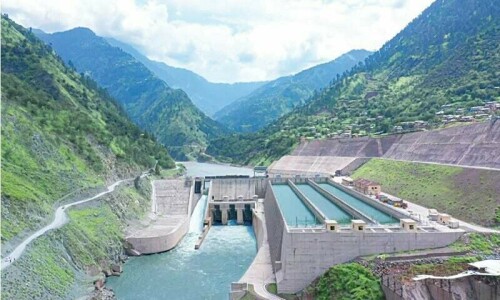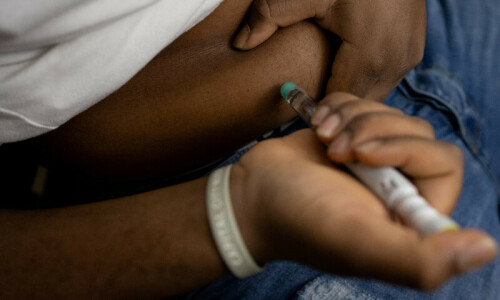“I can handle my problems very well and can face the pain; please proceed with the treatment,” Sarmad politely told the nurse, lying straight in his bed, as Zehra (Sarmad’s wife) smiled softly while Brig (Retd) Arshad Tariq (Sarmad’s father) stood firmly and gracefully, as he always does. With the door wide open, curtains partially raised, flowers and magazines spread on the table, this was Sarmad Tariq’s room at Combined Military Hospital (CMH), Rawalpindi, a few days before his sad demise, where I met him for the last time on a fine afternoon of April 2014. “Aap iss koo janey kiyon nahi deite, iss nay aur kaam bhee karnay hoon gay (why don’t you let him go, he must have other jobs at hand),” Sarmad asked his father who was busy in a discussion with me about health issues. As I left his room, he smiled, as he always did, while I saluted him back, not realising that we weren’t destined to meet again.
Yes! it was him — a quadriplegic athlete who became disabled in 1991 at the age of 16; a motivational speaker; a world record holder of the longest non-stop drive by a quadriplegic, covering a distance of 1,847 km from Khyber to Karachi in 33 hours in a ‘special-hand-controlled-car’; the first ever and only wheelchair bound athlete in Lahore Marathon who finished the race distance of 42 km in 7.5 hours on Jan 30 2005; a participant of the world’s largest marathon, ‘ING New York City Marathon 2005’ in USA; a happily married person who led a challenging life in Islamabad until he died peacefully on April 30 2014 due to multiple organs failure leading to cardiac arrest.
My acquaintance with Sarmad began in 1988 while we studied together in a school at Kharian Cantonment. A healthy, tall and quiet Sarmad was always unnoticed until he spoke or acted; so sensible and determined was he that children and teachers would equally get amazed by the colours of his personality. None of us had an idea of what he would turn out to be for his family, for the society and for the people with disabilities in the years to come. He moved to Quetta due to his father’s posting and, although I heard of the accident that led to his disability in 1991, I couldn’t get a chance to meet him. It was in January 1996, when commuting with a friend, Ahmed Nadeem Bajwa, from Pakistan Military Academy Kakul to Rawalpindi, I got a chance to meet Sarmad again who had come to receive Ahmed Bajwa in his ‘car’ at the bus stop. I was happy to meet him; was shocked to know his ordeal; and was amazed to watch him driving, laughing and charged with energy. “I will try to be useful for society till I live,” were his words when I asked about his future plans. Easy to say, but for a person who couldn’t even move his all fingers properly and who, till death, used a computer keyboard with his knuckles, it must have taken a lot to lead an independent life. But that is how Sarmad was, an individual with the ability to face down challenges, eyeball to eyeball.
Known as ‘Chairman’ in his circle, much has been written, said and told about Sarmad in the media. Everyone now knows that he was brave and talented. But more important is to know about his message: to remain useful as a citizen and to face things in life as they happen. Sharing his experiences of New York Marathon, Sarmad narrated to me and my colleague, Najia Rabbani, during an interview for Pakistan Armed Forces magazine Hilal: “Few days before the race, I fell in the washroom of a hotel and got my hip muscles ruptured. But I decided to participate in any case. People at the start point were amazed to watch a wheelchair borne athlete with the Pakistani Flag. Their good words for Pakistan encouraged me. After the initial few miles, I started to spit blood and thought to quit on health grounds. But a crowd nearby was repeatedly raising the slogan, ‘pain is temporary — pride is forever’. That was the time when I decided to reach the finish point in any case. The sounds of the crowd and their slogans still echo in my memory. I completed the marathon and came back with a participation medal.”
Sarmad Tariq has left behind a legacy for others to follow. He never bowed down in front of problems and was a source of inspiration for others. He will always remain alive in our hearts.














































